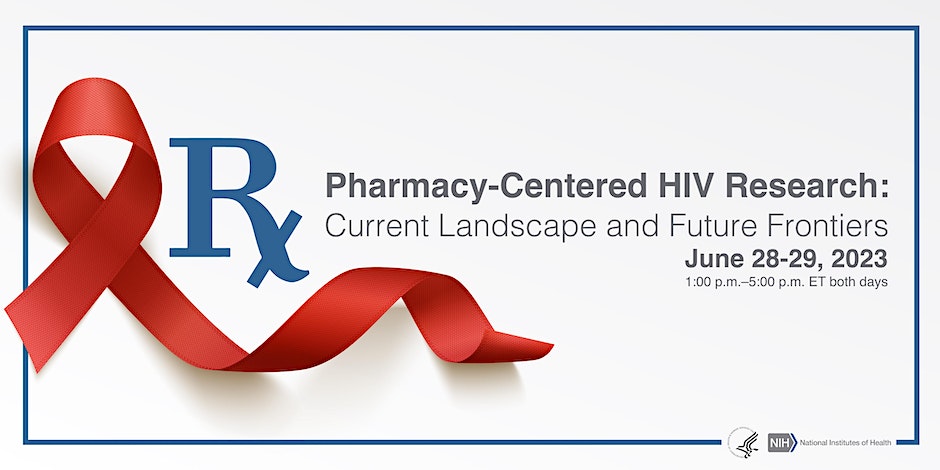Pharmacy-Centered HIV Research: Current Landscape and Future Frontiers
 This virtual meeting brought together researchers, pharmacists, and other pharmacy-involved professionals, community members, and federal partners to discuss research opportunities in how pharmacies are used to provide HIV testing, prevention, and care.
This virtual meeting brought together researchers, pharmacists, and other pharmacy-involved professionals, community members, and federal partners to discuss research opportunities in how pharmacies are used to provide HIV testing, prevention, and care.
This meeting was held June 28-29, 2023.
1–5:00 p.m. ET each of the two days
Summary
Pharmacies are often seen as places where people can go for health care without feeling judged or stigmatized, and they offer more convenient access through longer hours and more locations in communities affected by HIV. The National HIV/AIDS Strategy 2022-2025 (NHAS) recognizes pharmacies and pharmacists as important parts of a plan to make HIV care more accessible and improve population health.
Over two days, the NIH Office of AIDS Research (OAR), the National Institute of Mental Health (NIMH), and partners from other NIH Institutes, Centers, and Offices (ICOs) hosted a discussion of:
- The potential of pharmacies to provide HIV care
- The existing momentum for pharmacy-based HIV care
- The barriers to HIV care in pharmacies
- The role of implementation science research and cross-sector collaboration in building models for effective pharmacy-based delivery and support of HIV services.
Bill G. Kapogiannis, M.D., Acting Director of NIH OAR, provided opening remarks on Day 1 that framed the discussion around these and other topics.
Day 1: Pharmacy-Centered HIV Research: Current Landscape and Future Frontiers
Day 2: Pharmacy-Centered HIV Research: Current Landscape and Future Frontiers
Sponsors
NIH OAR
NIMH
In partnership with the Fogarty International Center (FIC), the National Institute on Alcohol Abuse and Alcoholism (NIAAA), the National Institute on Drug Abuse (NIDA), the National Heart, Lung, and Blood Institute (NHLBI), the National Institute of Allergy and Infectious Diseases (NIAID), the Eunice Kennedy Shriver National Institute of Child Health and Human Development (NICHD), and the National Institute on Minority Health and Health Disparities (NIMHD).
This page last reviewed on October 16, 2023

